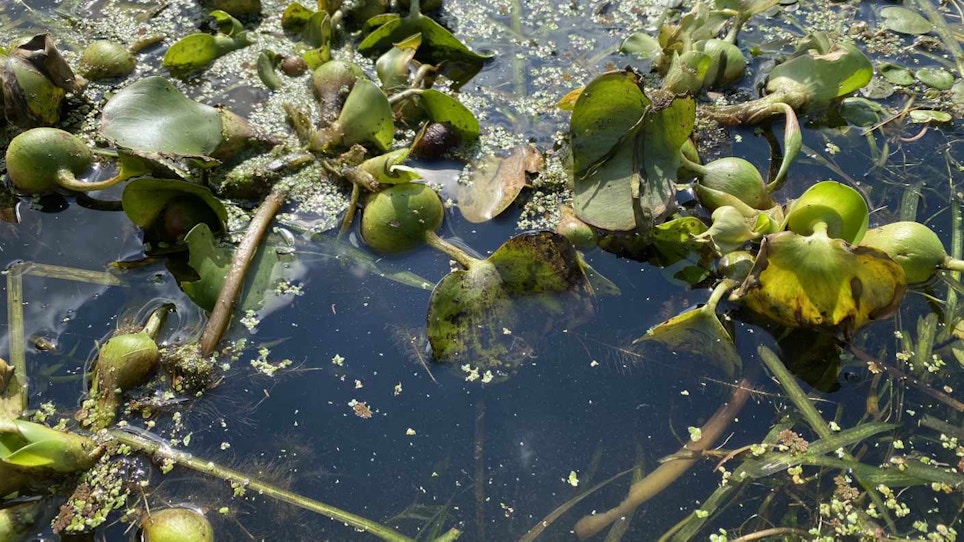If you see water hyacinth in full bloom, chances are good you'd think it looks pretty. If you're an angler, you might think the floating cover might be beneficial to providing a shady home to bass and bluegills.
This invasive, non-native plant is a disaster in waiting if it gets into a waterway, though. Whether it's in a small pond or large river, such as the Tennessee River where it was found in 2019 by Tennessee Valley Authority officials, water hyacinth is one of the worst plant species to have and try to control.
Water hyacinth is native to South America. It is unknown how it got into Guntersville Lake in north Alabama on the Tennessee River. The plant was discovered in 2019 in several areas of the lake. TVA officials mounted an immediate eradication effort with EPA-approved herbicide it uses on other aquatic plants in the lake. They found some smaller locations in 2020 thanks to a homeowner contacting them about it.
Hyacinth has large leaves and a vivid purple bloom on a stem. It floats in mats, has a long root system, and can break apart to float to other areas before continuing to grow. Left to grow freely, the hyacinth can reproduce quickly and overtake a small pond, lake or coves in bigger lakes and rivers. Left completely unchecked, even large waterways can become choked with it.
According to the University of Florida Center for Aquatic and Invasive Plants, healthy water hyacinth can weigh up to 200 tons in just one acre. In the U.S., the plant is present throughout the Southeast, California and Washington state.
In the video below, aquatic specialist David Brewster with the Tennessee Valley Authority's management team discusses water hyacinth and the agency's efforts to eradicate it in Guntersville Lake.






